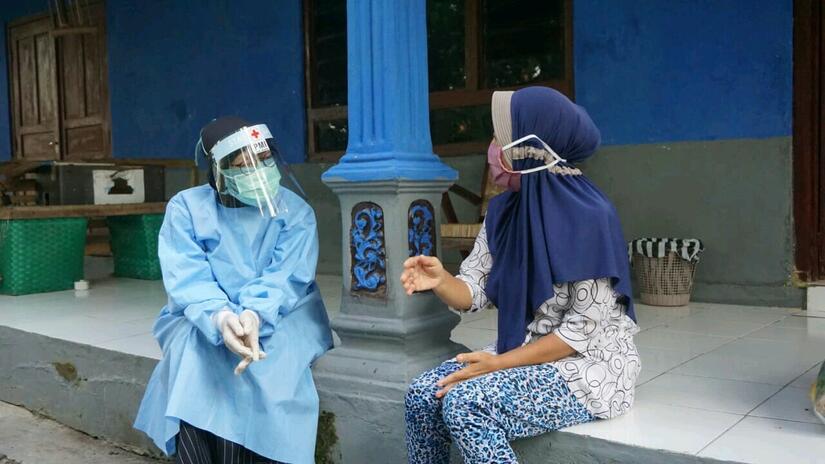Today, the Movement provides mental health and psychosocial support (MHPSS) in most countries to face the extensive unmet mental health and psychosocial support needs worldwide in all contexts and at all times, with a special focus on situations of crisis. Indeed, these needs increase dramatically during armed conflicts, disasters, and other emergencies such as the COVID-19 crisis.
Jagan Chapagain, Secretary General of the IFRC, said:
“We are proud to have honoured the commitments we made as a Movement in 2019 to increase the provision of mental health and psychosocial support through our programmes. Crucially, this includes increasing the support available to our own volunteers and staff. But our work is not over. Worldwide, funding for these vital humanitarian services is lagging, and mental health continues to be one of the most neglected areas of public health. We once again reiterate our calls for more investment in mental health for everyone. Mental health cannot wait.”
The report, “Mental Health Matters: Progress Report on Mental Health and Psychosocial Support Activities”, is based on a survey of 163 National Red Cross and Red Crescent Societies, the International Federation of Red Cross and Red Crescent Societies (IFRC) and the International Committee of the Red Cross (ICRC) carried out in 2019 and again 2021. It assesses the development in the delivery of mental health and psychosocial activities, in accordance with its policy on addressing mental health and psychosocial needs and Resolution 2 of the 33rd International Movement Conference in 2019, as well as the challenges encountered in delivering them.
“The mental health and psychosocial needs of people caught up in conflict, disasters and other humanitarian emergencies must be a part of the growing attention given to mental health around the world. When not addressed, these needs have a far-reaching and long-term impact on people, their families, their communities, and on the whole society”, said Robert Mardini, ICRC Director General.
Some of the key findings:
- The number of trained staff and volunteers on mental health and psychosocial support activities has almost doubled from 69,000 in 2019 to 128,000 in 2021.
- The mental health and psychological wellbeing of Red Cross Red Crescent volunteers and staff, and giving them the training and tools to respond to the mental health needs of others, has been one of the top priorities within the Movement.
- Despite the often-limited resources and funds, the components of the Movement are delivering a wide range of MHPSS services and activities in accordance with their respective mandates, commitments, and auxiliary roles.
The report will also be available in French, Arabic and Spanish in the coming days.

